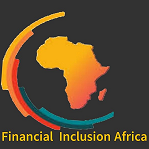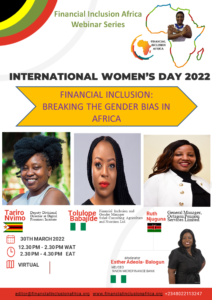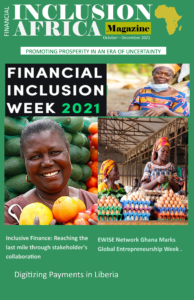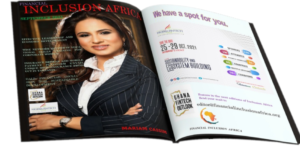POVERTY REDUCTION IN AFRICA – ARE SMEs THE MUCH-NEEDED CATALYSTS?
11 min read
“Extreme poverty anywhere is a threat to human security everywhere”. –Kofi Annan.
Poverty is a ubiquitous phenomenon. It is simply defined as a state of being poor and unable to afford basic human needs such as food, shelter and clothing. Hence, poverty is a state of need, not being able to access necessities of life that support actual dwelling, a state of helplessness (Asikhia, 2010).
The United Nations (UN) describes it as:
- a denial of choices and opportunities, a violation of human dignity.
- a lack of basic capacity to participate effectively in society.
- not having enough to feed and clothe a family.
From the perspective of the World Bank, the term may be defined, “as people living on $1.90 (GHC11.08) or less per day.” While the existing statistics portray varying degrees of poverty, across the populace in all five continents, a rather grim picture of the phenomenon is the reality in Africa, sadly.
Poverty in Africa is very severe, not just in the countryside, but also in peri-urban and urban areas where the provision of infrastructure and social services is relatively minimal or in some instances, non-existent. A high number of rural dwellers are dependent on agriculture for food and income, which in turn depends on rainfall; a natural occurrence they have no control over. Research shows that a good percentage of the poor in Africa are engaged in small businesses such as food selling, dress making, vulcanizing, hairdressing, or food processing (Asikhia, 2010). Notwithstanding these ventures which success is not predicated upon any natural occurrences like rainfall, about 6.8 million Ghanaians (Ghana Statistical Service) and almost 83 million Nigerians (National Bureau of Statistics) still live in poverty. It is notable, that in spite of a steady decline, having been recorded, in the poverty rate in Ghana, ie; 76.70% in 2005, 59.80% in 2012, and 56.30% in 2016, the prevalence of the occurrence has not been addressed.
What governments all over Africa have failed to explore effectively, is the pivotal role SMEs (Small and Medium Enterprises) play in poverty reduction. Several interventionist measures have been instituted to mitigate the key obstacles SMEs face, chief among which is the offering of financial-related support to this category of businesses. Unquestionably, this intervention, among several others, has not fully addressed their needs and concerns as these needs transcend a mere boosting of their financial fortunes. For instance, the Ghana Enterprises Agency (formerly NBSSI) provides both financial and non-financial assistance to Micro Small and Medium Scale Enterprises (MSMSE). In the case of non-financial support, they offer training on financial literacy and management, and business formalization (still finance-related), and not all SMEs can access this training, particularly those in rural areas.
SMALL AND MEDIUM ENTERPRISES
SMEs are business entities whose employee numbers fall below certain limits, usually spelt out by the laws of the countries they operate in. SMEs outnumber large firms in most economies and employ a lot more people. According to the Registrar General’s Department in Ghana, 92% of businesses are SMEs, which employ 85% of the total workforce and contribute about 70% to the GDP (Graphic Online). They have been the driving force of Ghana’s social and economic development for decades; leading in employment creation, production of essential goods and services and local revenue generation. Although they create more jobs than huge corporations, SMEs are highly prone to suffering major setbacks as regards job losses, on account of the diverse range of challenges they face, in their daily operations.
SMEs AND POVERTY REDUCTION
Most citizens of developing countries gain their household income from self-employment or service rendering. The SME sector is a significant source of employment for these people. Individuals who start SMEs create employment for themselves. As the business evolves, they transition from deploying the services of family members to employing extra hands. The wages these employees earn, enable them acquire some basic necessities of life, that they hitherto could not have afforded – thus marginally progressing upward the poverty line.
Most SMEs operate in the manufacturing/value-addition space and source their raw materials locally from the farmers: gari from cassava; shower gels and soaps from plantain and cocoa ashes and some fruits, are but a few of the examples of such processed products. While the gains of the local farmers witness a significant boost as a result of these purchases, the business owners, also record significant earnings from the sale of these products, locally and abroad. The latter is made possible because most consumers, both local and foreign, are willing to pay a premium for products that have been refined and provide a convenient, ready-to-use alternative.
The role of SMEs as critical catalysts for poverty reduction, within the African context, assumes a whole new meaning when considered from the broader perspective of contributing towards environmental sustainability. Effective and sustainable waste management practices remain a topical issue.
SMEs own recycling companies, turning waste, into re- usable products. There are beads made from broken bottles; bags and purses from plastic sachets; sandals and stools from un-used car tyres; wooden pallets for aesthetically appealing designs in construction, among others. The role of these businesses towards achieving the above-mentioned cause is noteworthy, as the waste items become a vital input towards their production efforts, and oils the wheels of employment. At the same time, the much-needed financial resources is freed-up to enable the governments channel same into other sectors to speed up overall national development.
All these come together to enhance economic growth and development, which is the basis for alleviating poverty. Undoubtedly, a vibrant SME sector remains the fulcrum around which key economic activities revolve, within the African context. The dividends that stand to be yielded are substantial if considered from the following perspectives:
- on the economic front, significant employment and income earning opportunities, abound, for the citizenry, while revenue generated from taxes and other financial obligations are a critical addition to the national kitty.
- the provision of improved infrastructure, and social amenities is significantly, enhanced. Again, up-grade in the standard of living of the populace with its associated benefits, becomes a spontaneous offshoot of a re-tooled and revamped SME sector.
Invariably, all these are interlinked and contribute towards the achievement of the cardinal SDGs (Sustainable Development Goals), particularly. the Goal 1 which seeks to end poverty by 2030, Goal 2 which looks at ending hunger and Goal 8, which envisions the provision of decent work and economic growth.
CHALLENGES
Let us look at this scenario;
Mabel is a young woman who lives in the Oti Region. She has completed senior high school but does not have enough money to further her education because her family is poor. She decides to start a gari (cassava flakes) processing business with cassava from her uncle’s farm and other equipment in their home. She does not have anyone to help in the processing because she cannot employ anyone at the moment and her siblings are busy helping their parents on the farm, so she only produces a 25kg bag every two weeks, which she sells for GHC30.00 ($5.14). The only place she can sell her gari is in her village because she is oblivious to other existing markets and also because she cannot package it properly for transport. After paying her uncle for the cassava, she is left with only GHC10.00 ($1.72), an amount that cannot cover even her basic needs. She applies for a loan at the community bank but is declined because she cannot provide any legal documents to prove she has a business. On the basis of the afore-mentioned, Mabel is still poor despite operating her trade for three years.
Many SMEs in Ghana and other developing countries are faced with Mabel’s challenges, despite the potential role they could play towards accelerated growth and job creation. They are cottage-industry based and run by self-employed persons who use labour-intensive technology for producing their goods; obviously due to inadequate financial support, low skills and knowledge, as well as reduced market opportunities.
Mabel has a viable business idea but does not have the resources to fund her idea. Her capital is inadequate; therefore, she cannot acquire modern equipment like a cassava peeling machine, grating machine and roasting machine, which would have directly impacted positively on her output.
The number one problem consistently facing small enterprises is access to capital. The lack of adequate financial resources to meet operational and investment needs places huge constraints on SMEs’ development. A study by the World Bank revealed that almost 90% of small businesses are not able to plough back due to credit challenges. In a study by Ayeetey et al (2017) on 133 manufacturing firms in Ghana, he noted that 60% complained of access to capital as a key drawback to expansion. The survey also revealed that the success rate in acquiring capital is; 69.1% for medium, 45% for small and 33.7% for micro enterprises. Larger organisations have more access to credit facilities than SMEs, especially start-ups. This is attributed to the fact that most SMEs operate in the informal sector, and cannot provide formal documents to seek funds, and this affects the lenders’ trust in their ability to repay the loans.
A lot of small firms in Ghana do not keep accounting records and are not properly registered. The regulatory challenges are the major reasons most of these firms remain unregistered. The high start-up costs, including registration and licensing requirements places an ominous burden on these enterprises. A world bank report shows that it takes 127 days to deal with licensing issues and there are 16 different bureaucratic process involved in licensing a business in Ghana. In South Africa, it is 176 days and 18 procedures, respectively.
From Mabel’s story, she does not know any market outside her village and does not also know how to package her gari for easy transportation to other markets even if she knows where to find the markets. This relates to the possession of low skills and knowledge; low skills in their field of operation and lack of knowledge of available market opportunities, product enhancement, and even lack of knowledge of available technology and how to use them effectively. No matter how much capital a business has, they cannot thrive if they lack proper management skills, technology, product development skills and market opportunities.
WHAT TO DO
As Bill Gates said, “I believe that if you show people the problems and you show them the solutions they will be moved to act”. Therefore, these are a few suggestions on how to address SMEs challenges.
Capacity building: human capital is the most important of all things because people are the builders of businesses. Like Zig Ziglar put it; “you don’t build a business, you build people, then people build the business”. The aptitude of the business owners and the workers strongly affects output and income. Their knowledge of new markets, available technology, product enhancement, sales trends, etc. will help boost competition and generate more returns, leading to expansion of the business. For instance, in the wake of the COVID-19 pandemic, a lot of small businesses used digital media, particularly social media to market and sell their products, attracting more customers and accruing more profits. Those who could not leverage the technology were adversely affected, some having to close down simply due to this lack of knowledge. Should Mabel obtain information on how to reach people outside her village and how to package her gari properly for transport, then she can make more money to expand her business.
Capital investment: businesses need money to grow and without it they become stagnant or even die. The banks, state and NGO financing institutions should design flexible terms of credit access for SMEs. The government of Ghana recently launched a National Micro, Small and Medium-Scale Enterprises and Entrepreneurship Policy and a GHC145 million grant fund to help SMEs recover from the impact of the pandemic. This is one of the ways governments can support small companies in their countries. Finance houses can also help bridge the capital gap by reducing interest rates and moving from lending based on business performance to collateral-based lending. If Mabel can access a loan or even a grant, then she can purchase modern equipment, hire people and buy more cassava so she can increase her production.
Also, banks and financial institutions should include advisory services for SMEs. There are a few consultancy firms for SMEs but most often the charges are relatively high. It is about time banks added this all-important factor; maybe even as a complimentary service. As a complimentary service, banks can simply advice SMEs who apply to them for funding on how to grow their business. As a consultancy, banks can open contact centres where businesses can visit or call to obtain business-related advice, at a subsidised cost. This will help to boost SMEs’ capacities and make them more innovative and creative.
However, SMEs must make sure they are in good standing to benefit from these interventions. “The beginning is the most important part of the work”. –Plato.
SMEs should start right. This should not be delayed till much later, in the life of the business. Start the proper way by investing in book keeping, accounting services, inventory management and tax paying. A good number of SMEs do not keep proper accounting records as well as general business records. Entrepreneurs must make some initial investment into such critical aspects of their business, before seeking help. “Spend time upfront to invest in systems and processes to make long-term growth sustainable”. – Jeff Platt (CEO of Sky Zone). Enterprises should take accounting and records keeping serious. Investment agencies and lenders want to see business records to ensure they are trustworthy; therefore, SMEs must invest in training in accounting and finance. The more they are grounded in basic accounting principles and analysis of financial statements, the better they can manage their businesses well, increase credit worthiness and obtain access to funding. Technology is the go-to resource of contemporary business operations; thus, SMEs can also capitalise on accounting software to make the business information management process easy so that managers can focus on other roles like sales and marketing. Moreover, SMEs should endeavour to register their businesses formally despite the cumbersome processes. This makes the business more credible and authentic to prospective financiers. If Mabel could just provide documents to show the legitimacy of her business, she could have been given a loan to expand.
Access to market: market opportunities should be made available to SMEs for quick sale of their wares. Apart from the local market, export opportunities can help enterprises expand reach and maximize profits. Governments should work towards eliminating trade barriers between their countries in order to allow their SMEs gain access to foreign markets. The African Continental Free Trade Area (AfCFTA) is a good initiative in this regard. Another step in this direction will be the reduction of imported products. This creates a gap in the market where SMEs can fill by producing more, hence, earning more.
All of these factors, if implemented will mean that more labour will be absorbed; more people will gain adequate income to afford their basic necessities and escape the cycle of poverty.
BY DR GENEVIEVE PEARL DUNCAN OBUOBI Bankier/SME Consultant




